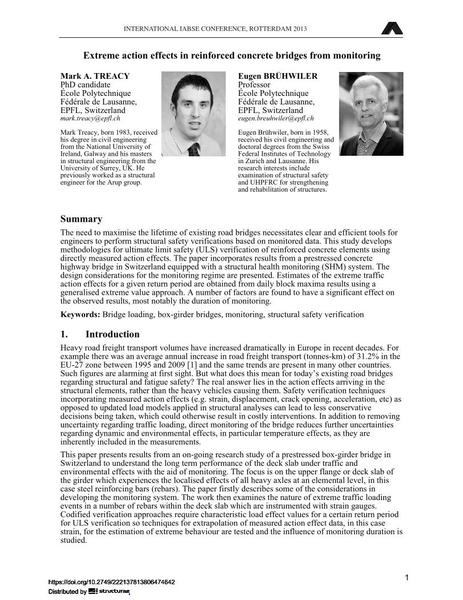Extreme action effects in reinforced concrete bridges from monitoring

|
|
|||||||||||
Détails bibliographiques
| Auteur(s): |
Mark A. Treacy
Eugen Brühwiler |
||||
|---|---|---|---|---|---|
| Médium: | papier de conférence | ||||
| Langue(s): | anglais | ||||
| Conférence: | IABSE Conference: Assessment, Upgrading and Refurbishment of Infrastructures, Rotterdam, The Netherlands, 6-8 May 2013 | ||||
| Publié dans: | IABSE Conference, Rotterdam, May 2013 | ||||
|
|||||
| Page(s): | 144-145 | ||||
| Nombre total de pages (du PDF): | 8 | ||||
| Année: | 2013 | ||||
| DOI: | 10.2749/222137813806474642 | ||||
| Abstrait: |
The need to maximise the lifetime of existing road bridges necessitates clear and efficient tools for engineers to perform structural safety verifications based on monitored data. This study develops methodologies for ultimate limit safety (ULS) verification of reinforced concrete elements using directly measured action effects. The paper incorporates results from a prestressed concrete highway bridge in Switzerland equipped with a structural health monitoring (SHM) system. The design considerations for the monitoring regime are presented. Estimates of the extreme traffic action effects for a given return period are obtained from daily block maxima results using a generalised extreme value approach. A number of factors are found to have a significant effect on the observed results, most notably the duration of monitoring. |
||||
